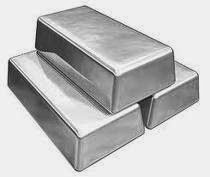The Voice Of Russia
Agreeing that Russia's and China's desire to get rid of the dollar in their gas transactions is quite likely to be fulfilled, he pointed out that many countries, especially the producers of raw materials, would like to end their dependency on dollar for international transactions.
"And let’s add something else here: the complaint of the American government regarding the French bank BNP Paribas," noted Mr. Sapir. "They complained about the fact that that bank performed operations that contradicted the American legislation, although that bank’s offices were located outside of the territory of the United States, but because the dollar was used and the clearinghouse was in the USA, the American government decided that the American legislation was violated. It is an extremely complicated legal issue, but we clearly understand that that precedent, in legal terms, can only make concerned a number of countries, which do their transactions in dollars and can only push them towards choosing other currencies for transactions."
Mr. Sapir also remarked that the desire to create another world reserve currency besides the dollar is hardly new, as General de Gaulle attacked the US dollar’s status in 1965-66, and that every currency crisis sparkles similar debates. "On the one hand, it is clear that the current system based on non-exclusive, but very dominant use of the dollar as the reserve currency is unsatisfactory! And actually, one can see that in the structure of currency reserves of various central banks. For example, one can see that besides the dollar there is the euro, and now also a number of new currencies – for example, the Canadian dollar, Australian dollar, Singapore dollar and so forth. Thus, in the least there is a natural need for diversification, and perhaps even the need to change the system," said Mr. Sapir.
He also added that in order to fully restructure the international currency system it needs to be politically feasible to conduct an international conference similar to the Bretton Woods Conference of 1944. "Another path is to develop currencies, which at the regional level are beginning to play the role of the regional reserve currency. I believe that China’s goal is to make its national currency, the yuan, in a few years become the reserve currency at the level of the Asia-Pacific Region
More >>>





